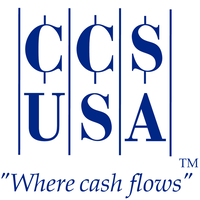Inside your lifetime, you may need a interval of financial distress. Notably throughout the current pandemic, COVID 19, medical funds, financial institution card funds and completely different financial service funds might start to pile up.
Within the occasion you’re unable to pay your genuine creditor, your debt might transfer to a debt restoration firm, incomes a set letter and possibly a stain in your credit score rating report. The credit score rating bureau firms, Experian, Transunion, and Equifax might lower your credit score rating ranking by 50 elements or additional, resulting in bigger charges of curiosity for any future lending ventures.
Credit score rating Assortment Firms, known as CCS for transient, is among the many largest debt assortment firms within the USA, based in Massachusetts. This agency is a part of the CCS Companies, so when you take a look at your credit score rating report, you might even see a set account with the creditor listed as “CCS”, “CCS Collections”, “CCSUSA”, “Credit score rating Administration Firms”, or “Credit score rating Assortment Firms”.
Within the occasion you’re getting hassled by CCS, which represents many high-profile American collectors, you should know that this established employees of debt collectors are acknowledged to utilize shady methods in relation to debt assortment and credit score rating reporting.
That said, by taking the suitable steps, you’ll stop the annoying and distressing calls and likewise you’ll have the flexibility to place your experiences with Credit score rating Assortment Firms behind you.
Desk of Contents:
- How To Take away CCS from Your Credit score rating Report
- Know Your Rights
The best way to Take away CCS From Your Credit score rating Report
1. Have Them Present the Debt is Yours
Now, let’s switch forward to Step Two, which must be completed inside 30 days of the first time that CCS obtained in touch with you.
Preserve this deadline in ideas and act fast. Points shall be harder for you must you don’t.
Step Two is all about getting the unfavorable entry wiped off of your credit score rating report. Probably the greatest methods to get the job accomplished is to put the onus on CCS. Ship the company one different letter, asking them to level out you proof that the debt in question is rightfully yours. You could be allowed to make this request. It’s utterly approved and proper, and normally often known as a Debt Validation Letter. This correct is granted to you thru the Truthful Debt Assortment Practices Act.
Why ask for proof? CCS is a debt shopping for agency, and possibly purchased the debt. Which implies that you’re not dealing with the preliminary creditor. Since CCS bought the debt, the company couldn’t have the flexibility to indicate that it’s a sound debt. The company might lack data related to the debt. Or in all probability, the debt data isn’t full or is inaccurate. It is commonplace for companies to mix up contact information.
If Credit score rating Assortment Firms is unable to validate your debt, the company shall be mandated by regulation to stop attempting to collect on the debt. The company may have to remove the unfavorable entry out of your credit score rating report. We’ve got now the contact information for CCS beneath:
- Mailing take care of: 725 Canton Avenue, Norwood, MA 02062
- Cellphone numbers: (617) 965-2000 or (877) 870-1000
- Website: https://www.ccsusa.com
- Office Hours: Monday – Friday, 9 a.m. – 7 p.m.
No matter incomes an “A” from the Larger Enterprise Bureau, CCS earned over 475 complaints to the BBB referring to inaccurate reporting or false reporting. There are moreover over 270 complaints filed with the Shopper Financial Security Bureau, stating the equivalent grievances.
2. Negotiate to Take away the Assortment
Typically, the debt validation letter doesn’t work out. The company may be capable of validate the debt, making you legally accountable to repay the debt. Sadly this means the unfavorable entry stays and that the company is free to proceed contacting you, with a ideas to getting money from you.
If the debt validation letter didn’t work out, don’t give up hope. Have in mind the tip intention of all assortment firms is to get money. To barter, you should provide to pay half of what you owe or select a value plan, upon the state of affairs that Credit score rating Assortment Firms will take away the unfavorable entry from the credit score rating report upon receipt of your value.
CCS might haggle with you. Try to return to an settlement which is sincere because of your credit score standing is significant. If it is worthwhile to pay a bit higher than fifty p.c to get a unfavorable credit score rating mark eradicated, it’s value it relating to your financial future.
On a regular basis negotiate and do each half else in writing…certainly not, ever do it over the phone!
If an settlement is reached, avoid granting the company entry to your checking account. In its place, mail a take a look at, nonetheless as soon as extra, by the use of licensed mail to maintain a paper path to your security. Thirty days afterward, observe up with a letter to guarantee that the unfavorable entry has been taken off of your credit score rating report. If it hasn’t been, ship yet one more letter requesting that this be accomplished.
3. Lease a Expert
Lastly, do you have to’re the type of one that might fairly have educated credit score rating restore agency take care of it and easily be accomplished with the complete factor, I counsel you strive Credit score rating Saint.
They’ll deal with you, and truly, they typically get stuff eradicated somewhat so much quicker. Attempt their site.
Determining Your FDCPA Rights
Harassing calls from a debt assortment agency tends to set off a wide range of unpleasant emotions, from anxiousness, concern, anger, frustration and previous.
Sadly, heaps of people that get these calls merely don’t understand their rights or understand the respected approved movement collectors are allowed to pursue. The fact is, debt collectors actually have a algorithm they should observe when attempting to collect on a debt.
These pointers are collectively known as the Truthful Debt Assortment Practices Act enforced by the Federal Commerce Payment or FTC. FDCPA prevents debt collectors from harassing you. As a result of this reality, do you have to’re contacted by a debt collector, merely state that you just understand your rights beneath the Truthful Debt Assortment Practices Act.
Proper right here’s a fast bullet degree document stating your rights:
- They cannot have you ever ever arrested or imprisoned, and it’s illegal for them to counsel in another case
- They don’t seem to be allowed to harass or threaten you in any means
- They will’t harass you at your job do you have to state you’re not allowed to acquire calls at work
- They should current documentation proving the validity of their declare at your request (Debt Verification)
- They cannot ship letters with an look of an official authorities or courtroom docket letter
- They might not threaten you with approved movement, whether or not or not that’s wage garnishment or damage to your credit score rating with out following by the use of.
- They might solely identify you between the hours of 8 a.m. and 9 p.m. in your timezone, not theirs
With this in ideas, I’ll stroll you through the tactic of eradicating Credit score rating Assortment Firms (CCS) out of your credit score rating report.
Dealing with CCS

Now, let’s get into the small print. Correct off the bat, whether or not or not you’ve been getting phone calls from CCS or acquired a letter from Credit score rating Assortment Firms, ship a debt verification letter to the company which requests “snail mail” communication solely.
Why? This ensures that there is always a written file of what transpires between you and CCS. Sending a letter by the use of licensed mail requires a signature upon provide, serving as proof your letter was acquired by CCS.
With phone calls, there obtained’t be a file. Which implies that the debt assortment agency may, in precept, return on its phrase and deny having given its phrase. Snail mail is the simplest method to guard your self.
In case you kind up the letter, as soon as extra simply ensure you level out the reality that you just’re aware of your rights as they’re outlined throughout the Truthful Debt Assortment Practices Act. Debt gathering suppliers are required to supply proof of your debt, which oftentimes might be troublesome for them to do. Additional on that throughout the subsequent paragraph.
Moreover, there is a statute of limitations positioned in your debt, limiting the time period the credit score rating reporting firm might sue you for reimbursement. Each statute varies from state to state, so ensure that to evaluation your state’s explicit authorized pointers concerning credit score rating matches.
Snail mail simplifies each half. It’s all there in black and white. If trouble arises, just like a lawsuit directed at you thru CCS, you’ll have your paper path. So, simply ensure you ship the debt verification letter. It’s really important!
Related posts
Subscribe
* You will receive the latest news and updates on your favorite celebrities!
Recent Posts
- How To Take away A Chapter From Your Credit score rating Report
- Strategies to Improve Your Credit score rating Score by 100 Components FAST
- The way in which to Take away Value Offs From Your Credit score rating Report
- 3 Strategies to Take away a Foreclosures From Your Credit score rating Report
- Assured Unsecured Credit score rating Taking part in playing cards for People with Harmful Credit score rating


